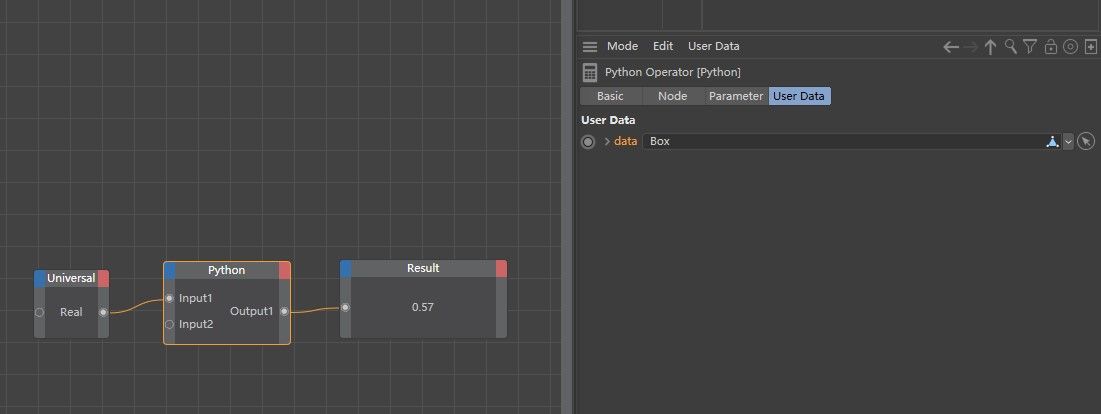Hi:
@PATPAT
First of all, the point movement algorithm of attitude deformation label is not complicated.
I've seen in some tutorials that you can add some data to a port with unconventional operations, but I forgot . So, I use Python nodes.
The data control label object weight value for the input port, so you need to add a user data of type link to the Python node.
Python is a dynamic language, and data types cannot be determined before compilation. There is no conditional right or wrong judgment in my code, so please add them by yourself.
import c4d
def main():
obj = op[c4d.ID_USERDATA,1]
Tags = obj.GetTags()
Pose = [tag for tag in Tags if tag.GetRealType() == 1024237]
#[4000,1101] is the ID of the strength value.
Pose[0][4000,1101] = Input1
global Output1
Output1 = Pose[0][4000,1101]
